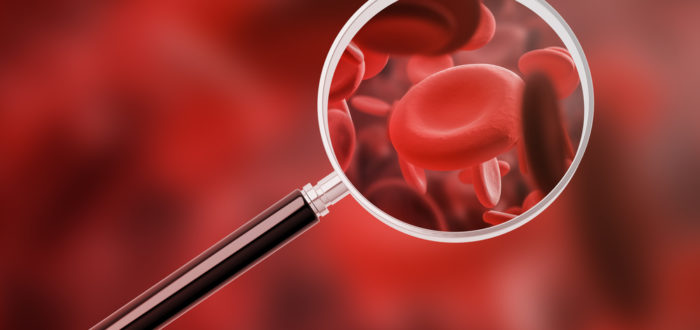Hearing loss can have a variety of causes. The more common causes of hearing loss include the natural aging process, and exposure to loud noises. However, there are other causes of hearing loss – some of which may surprise you.
Evidence pointing to a link between anemia and hearing loss is growing. Today, we’re taking a closer look at this potential cause of hearing loss.
What is Anemia?
The Mayo Clinic defines anemia as “a condition in which you lack enough healthy red blood cells to carry adequate oxygen to your body’s tissues. Having anemia can make you feel tired and weak.”
Note: Anemia can be caused by serious illness. For more information on the condition, as well as associated symptoms, please click here. If you suspect that you have anemia, please speak to your doctor.
There are different types of anemia, and each type has its own cause. The anemia could be both long term or temporary, mild or severe. The main types of anemia are:
- Aplastic anemia
- Iron deficiency anemia
- Sickle cell anemia
- Thalassemia
- Vitamin deficiency anemia
How are Anemia and Hearing Loss Linked?
The JAMA Otolaryngology-Head & Neck Surgery journal published a study investigating how one particular type of anemia is linked to hearing loss. Their study, published in 2017, looked at whether iron deficiency anemia was associated with hearing loss in the adult population. Researchers looked at data collected from medical records belonging to over 300,000 adults in Hershey, Pennsylvania. The average age of the participants was 50.
To narrow their pool, the researchers looked through the data to identify participants with iron deficiency anemia and a diagnosis of hearing loss. They split the hearing loss into three categories:
- Sensorineural hearing loss
- Conductive hearing loss
- Combined (or mixed) hearing loss
The results showed a link between iron deficiency anemia and two types of hearing loss: combined hearing loss and sensorineural. Researchers did not find a link between iron deficiency anemia and conductive hearing loss.
How Does Anemia Affect Your Hearing Health?
Your ears are made up of a network of delicate, small blood cells and hairs. These blood cells rely on a healthy supply of oxygen rich blood to help maintain optimal hearing health.
Oxygen is transported from your lungs around your body by hemoglobin. Iron is an important component of hemoglobin. In cases of iron deficiency anemia, your body cannot produce enough red blood cells. This affects how much oxygen is carried throughout your body – including to your ears.
The researchers pointed out: “Although the role of iron in the inner ear has not been clearly established, blood supply to this area is highly sensitive to ischemic damage.”
More investigation into this potential cause of hearing loss is still needed. “The next steps are to better understand this correlation and whether promptly diagnosing and treating IDA may positively affect the overall health status of adults with hearing loss,” the study authors noted.
The cause of a hearing loss isn’t always simple. For this reason, we recommend speaking to a hearing healthcare professional if you notice changes to your hearing. They can help identify the underlying cause, and refer you to your primary physician if needed.
Have a Question? Want to Get Your Hearing Checked? Contact Us Today!
Book an appointment with the hearing specialists at Hearing Services of Delaware today. We are here to help! Contact us today to schedule an appointment with one of our certified hearing care professionals.

